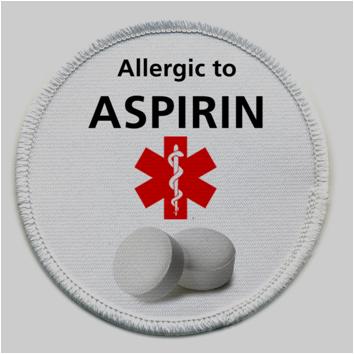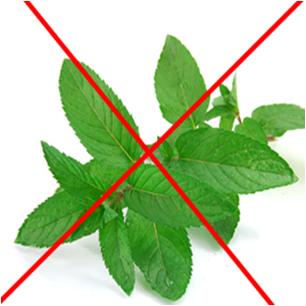How to Live with an Allergy to Aspirin

An allergy to Aspirin is one among the common allergies that can affect people of various age groups. Hives (red bumps), coughing, wheezing, rashes, puffed-up eyes or lips and shortness to breath are some of the major symptoms of an Allergy to Aspirin – also known as acetylsalicylic acid. On the other hand, the use of Aspirin is very common now days. It is basically a “salicylate substance” and is therefore used in the food and beverage industry in order to carry out the food colorings and additives processes. Moreover, Aspirin is also used in the medical field as it is one among the non-steroidal anti-inflammatory drugs. It helps in relieving body pain, headache, and many other forms of health discomforts. However, if you have an allergy to Aspirin, then there are some simple ways for you to cope with it and to live a comfortable life.
Instructions
-
1
Stay away from medication containing Aspirin
Get an idea of the medicines that contain Aspirin and try your best to avoid them as much as possible. You can use some alternative medicines, discussing with your doctor. Given below are some of the very common medications containing Aspirin:
- Kaopectate
- Alka-Seltzer
- Ibuprofen like Advil and Motrin
- Pepto-Bismol
- Ecotrin
- Naproxen like Naprosyn, Aleve and Anaprox
- Dristan
Image Courtesy: lakenormanallergy.com
-
2
Avoid azo dyes and benzoate
People with an Allergy to Aspirin are found sensitive to benzoate and azo dyes. On the other hand, both of the chemically are widely used in variety of processed food items. Stay away from such products as much as you can.
Image Courtesy: 21food.com
-
3
Eat Foods that are low in salicylates
Prefer such food items that are naturally low in salicylates. Given below are some of such food items that you can consider:
- Fresh meat
- Fish
- Shellfish
- Poultry
- Eggs
- Pure dairy products
- Cereals
- Bread
- Fresh vegetables
Image Courtesy:surfnetparents.com
-
4
Be Careful about some Fruits
There are some fruits that are natural power houses of salicylates. Try to avoid them in order to live with an allergy to Aspirin. Given below are fruits that contain high ratio of salicylates:
- Oranges
- Apricots
- Pineapples
- Plums
Besides the mentioned fruits, try to avoid canned and dried fruits.
-
5
Increase the Intake of Vitamin C
Vitamin C is one among the useful natural remedies to live with various allergies. It helps in putting off the aspirin allergy symptoms from budding. However, make sure to use natural sources Vitamin C in the form of some vegetables and fruits. Guavas, Bell Peppers, Thyme, Parsley, Kale, Mustard Greens, Garden Cress, Broccoli, Cauliflower, Brussels sprouts, Papayas, Oranges, Clementines, Strawberries, Lemons, Limes, Raspberry, Blackberry, Grapefruit, Parsley, and Blackcurrant etc are the rich sources of Vitamin C.
Image Courtesy: health.howstuffworks.com
-
6
Avoid Mint
Pass up the items that include mint or mint flavoring as they can contain a lofty amount of salicylates. Do not choose mint flavored chewing gum, breath freshener or toothpaste etc.
Image Courtesy: natural-homeremedies-for-life.com
-
7
Consider Some Home Remedies
There are some home remedies available to live with an allergy to Aspirin, controlling many allergic reactions. They are not only simple and natural, but very effective as well. Given below are some of those home remedies:
Cinnamon-Honey Mixture: Beat up equal quantity of freshly ground cinnamon and pure honey until it form a smooth thick paste. Apply this mixture to the infected area of your skin, leave for some time and then rinse off with lukewarm water.
Apple Cider Vinegar: Mix some water and an apple cider vinegar and use it to wash the affected area of your body. Apply it on regular basis until you overcome the Aspirin allelic reactions.
Wet Towel: Dip a small clean towel or piece of cloth into a bowl of cold water and place it on the area of your skin suffering from allergic reaction. It helps in soothing the itchiness and irritation.
Oil Mixture: Mix up some sugar with vegetable or sunflower oil until the sugar dissolves completely and forms a thick paste. Apply it to the itchy skin and wash after few minutes.
Image Courtesy: honeymaskforacne.com





